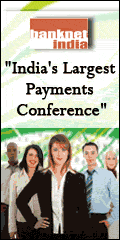|
|
Inflation over 8.5% Could Slow India's GDP Growth To 7.8% in 2008-09
June 26, 2008 -- The Indian economy is expected to be adversely affected by the surge in
inflation fuelled by energy and commodity prices. Despite signs of growth slowing down from last year,
the Reserve Bank of India has already hiked interest rates twice during June to deal with inflationary
pressures and may well do so again. Higher interest rates are expected to moderate growth even
further.
Dr. Subir Gokarn, Chief Economist, Standard & Poor's Asia Pacific, said: "We expect the inflation
rate to average 8.5% to 9.0% during 2008-09. Food price scenarios have improved somewhat,
given comfortable levels of wheat stocks and expectations of a normal monsoon this year. However,
high oil prices, strong input costs, and a depreciating rupee continue to exacerbate inflationary and
other pressures. High interest rates, along with a slowing global economy, will trim GDP growth to
7.8% in 2008-09. We see the yield on 10-year government securities at 8.5% to 8.7% by fiscal
year-end."
Rising inflation, a forecast slowdown in economic growth, and turmoil in the global financial markets
have dampened investor confidence and led to foreign capital outflow. This has led the rupee, which
was already under pressure from a rising oil import bill, to depreciate as sharply this year as it
appreciated in 2007.
We expect India's current account deficit to swell to about 2.6% of GDP. The rupee should remain at
about its current level for the major part of the current financial year, before appreciating to
INR41-41.5/US$ towards the end of the fiscal year, as global market conditions become more stable
and oil prices moderate.
Fiscal improvements in the past few years are likely to be reversed this year, due to a surge in oil,
fertilizer, and food subsidies. The central government's fiscal deficit (including off-budget liabilities) is
an estimated 6.2% of GDP, compared with the budgeted 2.5% (excluding off-budget liabilities). The
consolidated fiscal deficit of central government and states should touch 8.5% of GDP.
Mr. Dharmakirti Joshi, Principal Economist, CRISIL, added: "After four years of noteworthy fiscal
consolidation, a reversal is on the cards in 2008-09. The fiscal improvement was supported by very
strong revenue gains, particularly from direct tax. These gains are now being offset by the sharp
surge in the subsidy burden from petroleum products and fertilizers. The Sixth Pay Commission and
a farm loan waiver will add to the fiscal stress this year. Despite the deterioration, the situation is
not yet as bad as it was in the beginning of this decade when the consolidated deficit of the centre
and states was above 10% of GDP."
(This is press release of Standard & Poor's & Crisil)
Basel Committee announces steps to strengthen banking system
Global credit quality worsens in first quarter 2008
Current challenges in the global financial markets
Highest levels of political and economic uncertainty in 2008
No immediate threat to financial stability in India
CLICK FOR MORE FEATURES & STORIES
|
|




|





